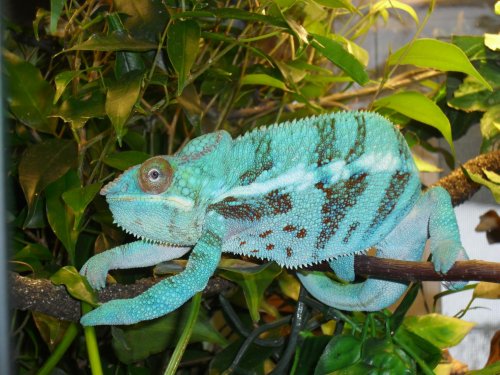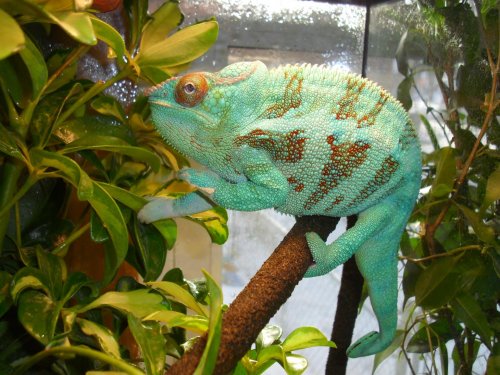kissarose
New Member
So I was hand feeding our male panther today and noticed that when he was going to grab his food, his aim was off every time. I ended up having to put it right up to his mouth for him to grab it. I also noticed that he usually keeps his one of his eyes shut for long periods of time. Do you think he could be blind in one eye? He is 13 months old and we have had him since he was 2 months. He eats and drinks normally. The other thing is we can't get him to mate with our receptive female. Could it be, because he can't see her? She never darkens when we put them together and kind of seems to but he goes to the opposite side of the enclosure and wants nothing to do with her. Any thoughts?




